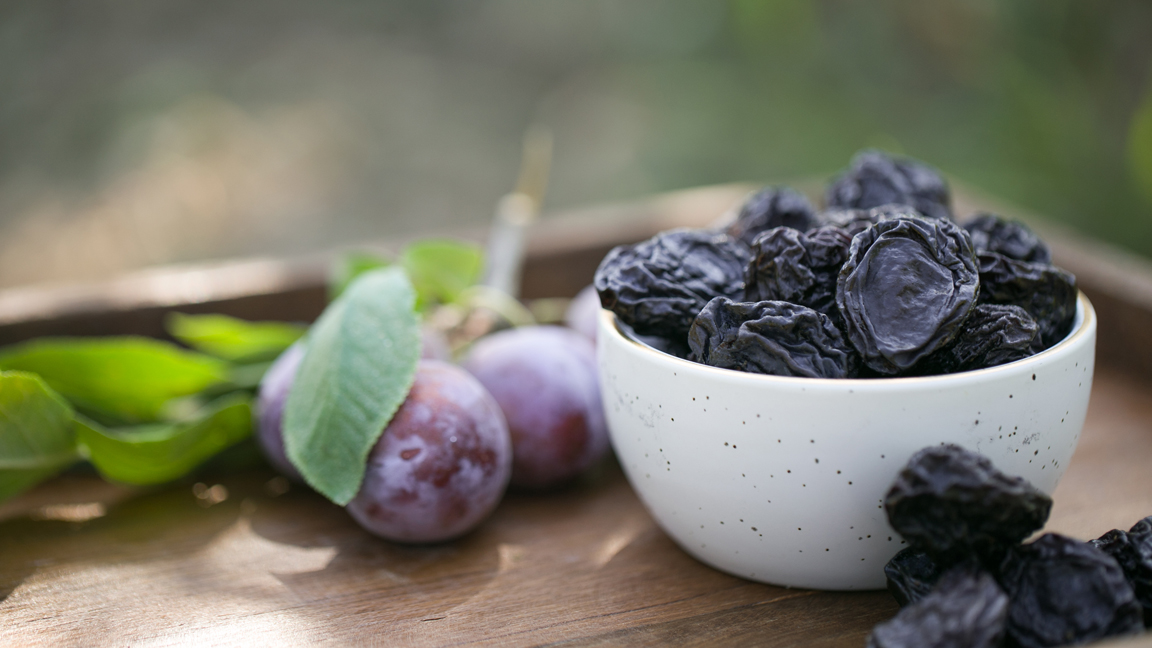



Plums that are grown for drying purposes are known as prunes. Hence, these are the byproducts of extremely dried plums. Prunes are a type of fruit that is extremely popular in Australia. Not only do prunes improve vision, but they also contain many qualities to improve declining heart conditions. Hence, this fruit is a great source of antioxidants that can be consumed on a regular basis.
The humble prune, largely confined to the morning meal in Australia, has long enjoyed star status in other cultures. Prunes are a frequent ingredient in North African and Middle-Eastern cuisines and in Finland, they’re often used in pork and duck dishes. They’re popular in Italy and the Netherlands and in Japan, the prune is valued for its high potassium content.
The earliest records of the prunes being imported into Australia date back to 1866 and at the time, this particular fruit was seen as potentially “a great source of wealth to the country.”Since then, there have been numerous plantings in and around southern NSW, with many trees being planted by returned soldiers in the 1920s. Today, the heart of the Australian fruit is in the temperate areas of Young and Griffith, which offer ideal conditions for picturesque plum orchards. Now, around 70 farmers produce up to 3,000 tonnes of premium quality Australian prunes every year. Prune production is one of the very few Australian horticultural sectors that are continuing to grow, with farmers planting new trees every year.
Australian prunes are dried on the farms where they’re grown. Farmers pick them in late summer and early autumn when the fruit has ripened and the sugar levels are just right. At that stage, the fruit is hanging like large purple grapes on the tree branch. It’s picked very quickly by mechanical shakers and immediately dried overnight in large hot-air tunnels on the farm so that the picking and drying process is complete within 24 hours.
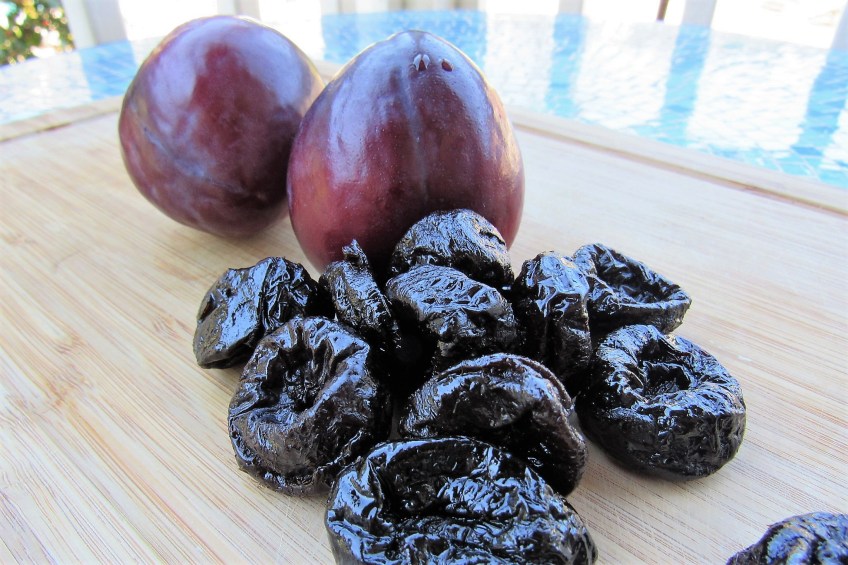

As of June 2019:
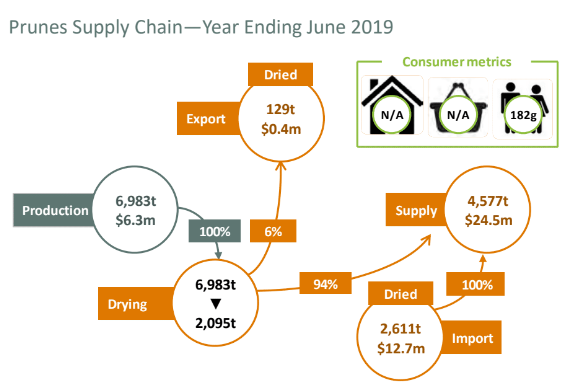

Plums, that are meant for drying, are predominantly produced in New South Wales, particularly in the Griffith region. Some of the other production areas are Young in New South Wales and Cobram in Victoria.
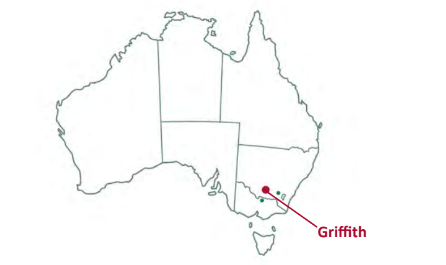

As of June 2019, Australia managed to import 2,611 tonnes of this fruit. On the other hand, 129 tonnes of prunes were exported to other parts of the world. The graph below portrays the imports and exports of 2019.
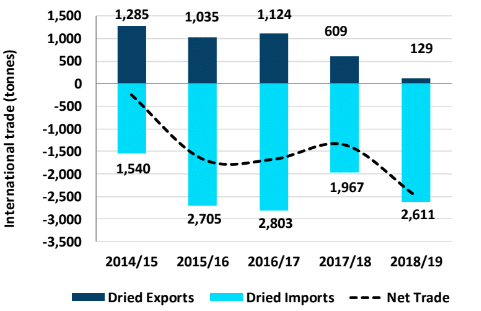

Article by: Hari Yellina (Orchard Tech)